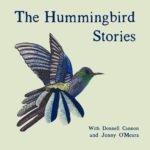We are Donnell Cannon and Jenny O’Meara, two passionate educators. Welcome to Season 2 of The Hummingbird Stories! This season, we’re asking the question: What does an extraordinary education look like for every student?
We’re hosting conversations with the most innovative, equity-minded leaders in education from all across the country — and that includes young people.
In our fifth episode, we’ll explore what it looks like to elevate relevance in the student experience. What does it look like for young people to access real world learning during the school day? What happens when they are in the driver’s seat of their learning such that what they learn is relevant to them?
As teachers and school leaders ourselves, we always knew relevance was critical to learning. What we didn’t always know was how to bring it to life in our classrooms or across our schools. As principals, we tried training from the Buck Institute to implement Project Based Learning (PBL).
The training was fantastic and useful, but we didn’t have the structures in place for strong implementation. We also had a staff with varied levels of readiness. As a result, some teachers leaned in heavily and developed PBL units regularly, and we did our darndest to get them ongoing coaching and support. For some teachers, they did the one project unit minimum, because that’s what they could give at the time.
We were glad to customize based on teacher needs and readiness, but it was really challenging to authentically make a schoolwide shift to change how we planned and executed learning experiences.
Ultimately, we have come to believe that to create authentic real world and relevant learning experiences with students and teachers, we must reimagine many other parts of school. But what are those other elements that need to shift?
We believe we might start to answer this question by looking and listening to leaders who design innovative school models exuding relevance. On this episode, we hear from two of those Hummingbirds, Miguel Gonzalez of Embark Education and Dr. Tyler Thigpen of The Forest School. We’ll also hear from Quinn and Luke, two students at Embark.
We are huge fans of the work of Miguel and Tyler are doing.
At Embark, students learn to create their own schedules each week with the guidance of an educator. Included in their choices of how they spend their time is an Integrated Shop Project. Embark has two North Denver businesses embedded in their school: Pinwheel Coffee and Framework Cycles. Students choose to spend time in either shop to learn and practice skills through projects.
At The Forest School, learners in grades 9-12 design their own high school experience. They even get to build the courses they themselves take. How we wish we had an experience like that as young people!
We don’t just want to hear from guests on our show. We want to hear from you, too. In every episode on this season of The Hummingbird Stories, we’ll pose a question and ask you to weigh in through our Telbee. This week’s question asks you to think about your own community. Given your community’s strengths and/or needs: what learning experiences or school would you build, with an unlimited budget? (Maybe you wish your community had a bike shop, like Jenny does!) Visit sayhi.chat/hummingbird to chime in.
We know a lot of “Hummingbirds” who are no longer waiting for change in a system on fire, but rather choosing to do something. We hope they’ll inspire you to take real action, no matter how small, toward redesigning schools.
An extraordinary education for all young people is possible. But it’s going to take all of us to make it happen.

